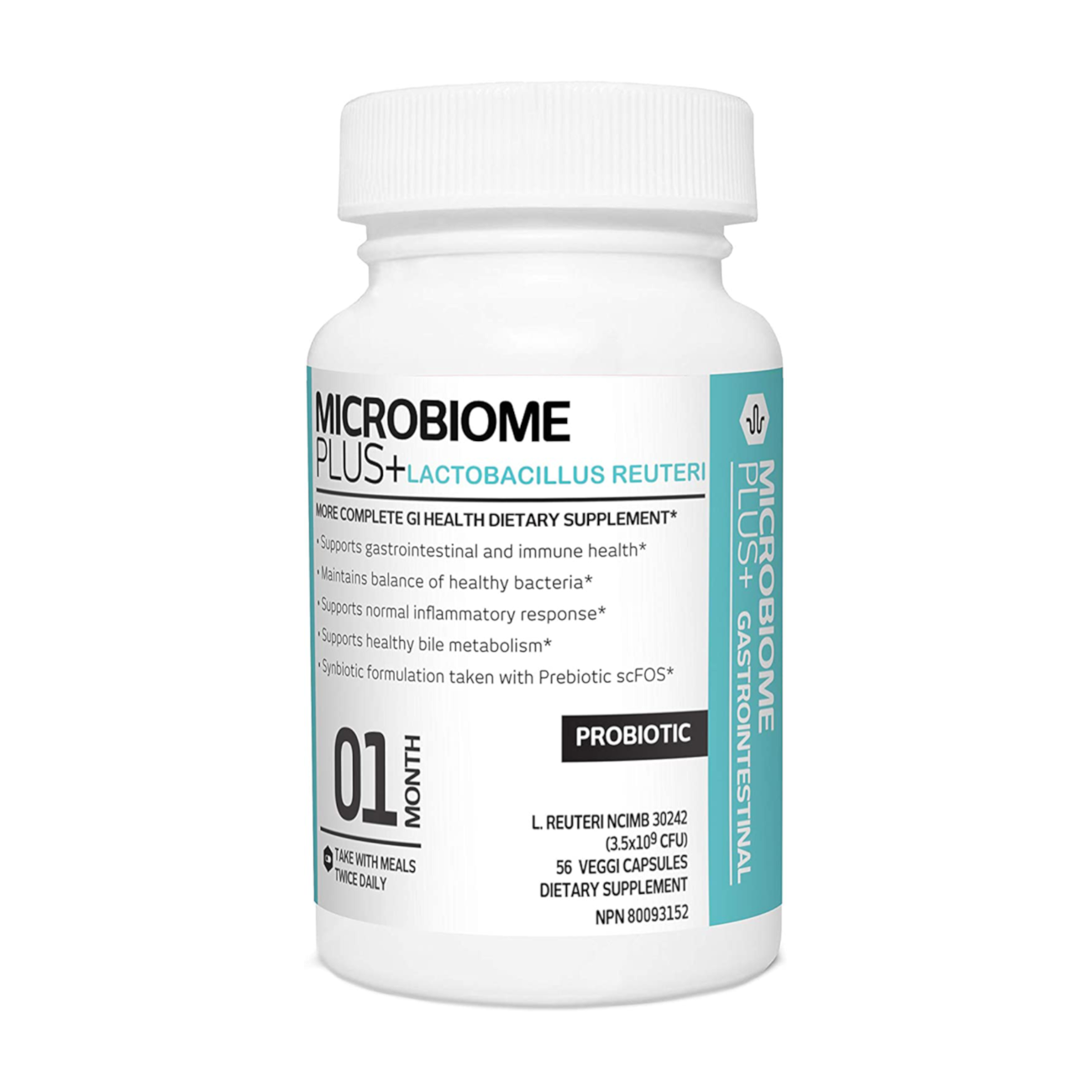The quality of our probiotic, LRC (or Lactobacillus reuteri NCIMB 30242) that makes it stand out from other probiotics on the market today is its ability to support your heart health. Among the line-up of medical epidemics, cardiovascular diseases are still on the top list of the current crisis. The introduction of LRC into the world of probiotics has made it possible to think outside of their “gut benefits” and has provided a new paradigm for protection against heart disease.
What does the Current Research say about LRC and Cardiovascular Health?
Raised blood levels of bad cholesterol (LDL-C) are a known but modifiable risk factor for heart disease. Elevated LDL-C can kick off heart disease by promoting the formation and growth of fatty plaques in the arteries. We can’t make a claim that a dietary supplement can prevent or treat a disease unless proven otherwise. However, a mounting piece of evidence supports that LRC can lower the LDL-C levels by more than 10%, thus, cutting your risk of developing cardiovascular disease to a significant extent. [1] In fact, LRC is the first clinically proven probiotic to support healthy cholesterol levels.
Moreover, we know that inflammation and the yellow fatty deposits (plaques) within the arteries that lay the foundation for heart disease go hand in hand. LRC also carries strong anti-inflammatory properties and can act at the molecular level to counter mechanisms that trigger heart disease.
How does the LRC Probiotic Lower the Bad Cholesterol Levels?
The natural process of Cholesterol Removal
To understand how LRC gets rid of the excess bad cholesterol, it would be helpful to know the natural process of cholesterol elimination.
Cholesterol comes either from your diet or most of it is produced by your body. It is then packaged into particles called lipoproteins. The two important lipoproteins are high-density lipoproteins (HDL or good cholesterol) and low-density lipoprotein (LDL or bad cholesterol).
We need a certain amount of cholesterol (in particular, HDL) to keep our cells alive. However, LDL-C is the bad guy that needs to be watched as too much of it can pose a plethora of health problems.
To get rid of the excess bad cholesterol, your liver needs to convert it into bile acids — natural detergents that break down fat, including cholesterol. These bile acids then travel from the liver to the intestine back and forth and finally flushed out through your feces. But these natural processes may not be functioning effectively in every individual, which is why the levels of bad lipids start rising.
LRC works in several ways to bring down the LDL-C levels.
LRC has a unique Bile-Salt Hydrolase (BSH) Activity
Cholesterol needs bonded bile acids to get liquefied and be transported easily into your blood. Anything that breaks the bond of bile acids is likely to impede the cholesterol transport into the blood. The probiotic LRC has been specifically formulated utilizing the same mechanism of action. It contains a distinct BSH (bile-salt hydrolase) activity. BSH is an enzyme that splits the bonding between the bile acids and hinders the absorption of the contained cholesterol into your bloodstream. That is — it increases the circulating un-bonded (deconjugated) bile acids while making the LDL cholesterol less dissolvable, less absorbable, and less available in your blood. [1] [2]
LRC accelerates the Breakdown and Removal of Bad Cholesterol
Owing to its unique potential to enhance the removal of cholesterol by speeding up the flow of bile acids towards your poop, LRC can help get rid of the excess bad cholesterol levels in your blood. [1] The body then uses up the remaining cholesterol in your body to replace for the bile acids lost in the stool, further reducing the LDL-C levels.
LRC reduces the levels of a naturally-occurring Protein that promotes Blood clot
Apart from lowering the LDL-C levels, this heart-healthy probiotic strain can also decrease the fibrinogen levels by 14.25%. [1]
What is fibrinogen and what is its link with heart disease? It is a protein produced by the liver in response to injury to thicken your blood and stop bleeding by forming a blood clot. But in some people, liver overproduces fibrinogen resulting in high blood levels, which makes their arteries (specifically those supplying the heart) prone to develop blood clots. These clots block the blood flow, paving the way to heart diseases like angina and heart attack. [3]
Research shows that LRC can lower fibrinogen levels, thereby, preventing the formation of blood clot in your arteries and minimizing your risk for heart disease. [1]
LRC may curtail the levels of High-sensitivity CRP (hs-CRP)
Hs-CRP is a protein marker of inflammation that has been lately used as a predictor for impending heart disease. The probiotic LRC may also decrease the hs-CRP readings; hence, lowering your risk for heart disease. [1]
Is there a need for Future Studies to Confirm the Effectiveness of LRC against Heart Disease?
Although the evidence surrounding the heart-related benefits of LRC is pretty compelling, there is always a need for exploring and further understanding the effectiveness and mechanism of action of any pharmaceutical or non-pharmaceutical product, including probiotics.
References
- Jones ML, Martoni CJ, Prakash S. Cholesterol lowering and inhibition of sterol absorption by Lactobacillus reuteri NCIMB 30242: a randomized controlled trial. Eur J Clin Nutr. 2012;66(11):1234-41. doi: 10.1038/ejcn.2012.126.
- Choi SB, Lew LC, Yeo SK, Nair Parvathy S, Liong MT. Probiotics and the BSH-related cholesterol lowering mechanism: a Jekyll and Hyde scenario. Crit Rev Biotechnol. 2015;35(3):392-401.
- Lima LM, Carvalho M das G, Sousa M de O. Plasminogen and fibrinogen plasma levels in coronary artery disease. Revista Brasileira de Hematologia e Hemoterapia. 2012;34(4):298-301. doi:10.5581/1516-8484.20120075.










